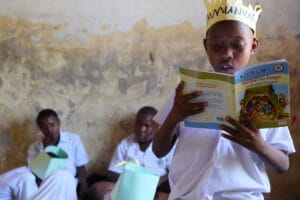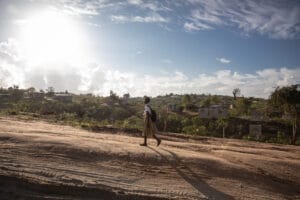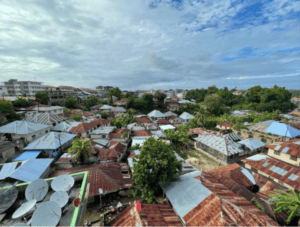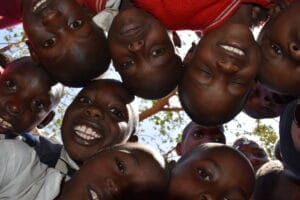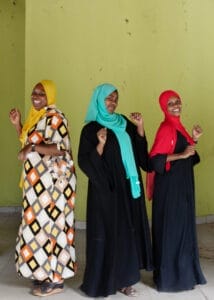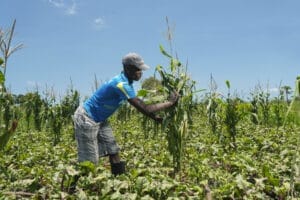
Despite the efforts made by the government and development partners to improve the agricultural sector, the contiguous economic and climate…
Discover moreWeWorld has been working in Tanzania since 2010, in the regions of Njombe, Tanga, Mtwara and Dar es Salaam. Our interventions in the country focus on education, sanitation and health, protection, advocacy for the rights of children, girls and women, and community involvement.
The United Republic of Tanzania is located in the eastern part of Africa and has 63 million inhabitants. The annual population growth is 3 % and at the same time 30 % of Tanzanians live below the poverty line. The nation has made considerable progress in maintaining its political stability through peaceful transfers of power and democratic elections. Despite this, the economic crisis continues to have a negative impact on the country, while access to basic services such as healthcare, the education system, clean water and reliable energy sources remain limited. Although Tanzania has made progress in certain areas, there are still many challenges: public and private sector corruption, human rights violations, restrictions on freedom of expression and speech, and high dropout rates are some of the challenges in the country that need to be addressed.
WeWorld has been working in Tanzania for over 13 years, the staff is currently composed by 22 employees, located in the 4 offices of:
With our projects and activities, we strive to improve the living conditions of vulnerable populations and to support children, girls and local communities in the fight against poverty and inequality, with the final aim to achieve a sustainable development. In particular, we aim to increase the quality of education in kindergartens and primary schools, and we are committed to providing support, care and psychological, legal and medical assistance to girls and boys who are victims of sexual violence, abuse and neglect - phenomena that are still widespread in the country. We also work to promote a culture of mutual support, social commitment and respect for human rights. Our areas of intervention, in collaboration with partners and local authorities, are developed according to set objectives based on the study of the needs that have emerged in the country such as education, sanitation and health, nutrition, children's and women's rights and community involvement.
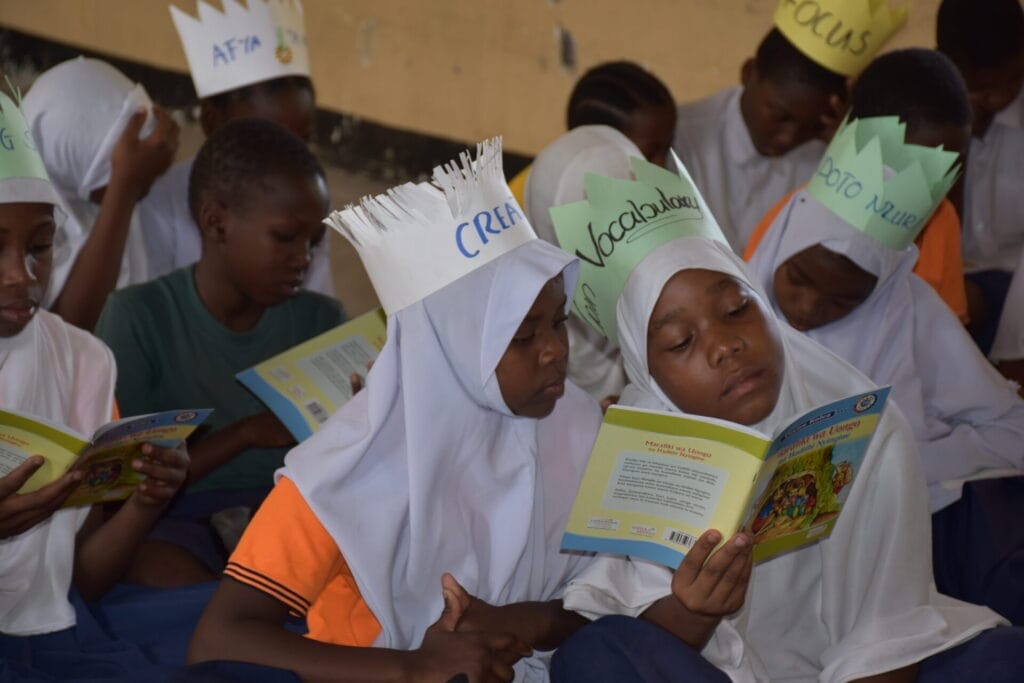
Our education projects are mainly developed in two directions: on the one hand, the construction and rehabilitation of school infrastructure and, on the other hand, the support of the most fragile children, in order to help them in their academic progress and to prevent them from dropping out of school, as well as to educate the school community as a whole. There are currently three projects we support and promote in Tanzania in the field of education: KITE, MAMMIE and Pamoja Tudumishe Elimu project. To participate in these projects there are the 26,000 boys and girls of the intervention schools, including people with disabilities, as well as the 585 teachers participating in training courses and using the school infrastructure. Up to date, 322 members of school committees have been involved, especially in decision-making processes. More equitable teaching, greater access to basic services and the social inclusion of the most fragile people create the basis of our education projects in Tanzania.
Kujenga Amani Pamoja, which in the Swahili language means 'building peace together', is a programme that works with young people and youth organisations and opens a space for peaceful interactions between local networks, local government authorities and communities across borders. There are 3,316,059 people that indirectly benefit from the project in Tanzania, especially on the borders. As a multi-national programme between Kenya, Tanzania and Mozambique, Kujenga Amani Pamoja enables young men and women to freely express their ideas, thereby strengthening institutions and promoting Swahili Culture.
For the 2 projects KITE and Pamoja Tudumishe Elimu, it is currently estimated that: among the children, 52% are female; among the parents, 50% are female, as are 70% of the teachers. Among the 18,536 students, 9,639 are female, while the remaining 48% are male, or better 8,897. There are 267 teachers, of whom 80 are male and 187 are female. Finally, among the 5,000 parents, about 2,500 are male and 2,500 female.
For what concerns the MAMMIE project, the participants can be divided into three categories:
The total number of female participants is 3,854, while the total number of male participants is 3,982. The total number of participants is therefore 7,836. Finally, for the Kujenga Amani Pamoja project, we are in the process of mapping and data collection.
Despite the efforts made by the government and development partners to improve the agricultural sector, the contiguous economic and climate…
Discover moreContext of intervention: Previous surveys reveal alarming rates of violence in Tanzania, with nearly 3 in 10 females and 1…
Discover moreThe project takes action in East Africa and more specifically in Ethiopia, Kenya, Tanzania and Burundi in the areas of…
Discover moreThe “KIJANI PEMBA” project aims to improve the living conditions of individuals and families in the main urban areas of…
Discover morePAMOJA TUDUMISHE ELIMU: Together to strengthen Quality Education and Children Retention project aims at engaging and retaining students who are…
Discover moreThe project WORLD aims at encouraging intercultural dialogue with third countries and increasing tolerance through online people-to-people interactions, building on digital, youth-friendly technologies. The project…
Discover moreThe context Kenya Despite the sustained economic growth in the last few years, Kenya is still faced with acute socio-economic…
Discover more